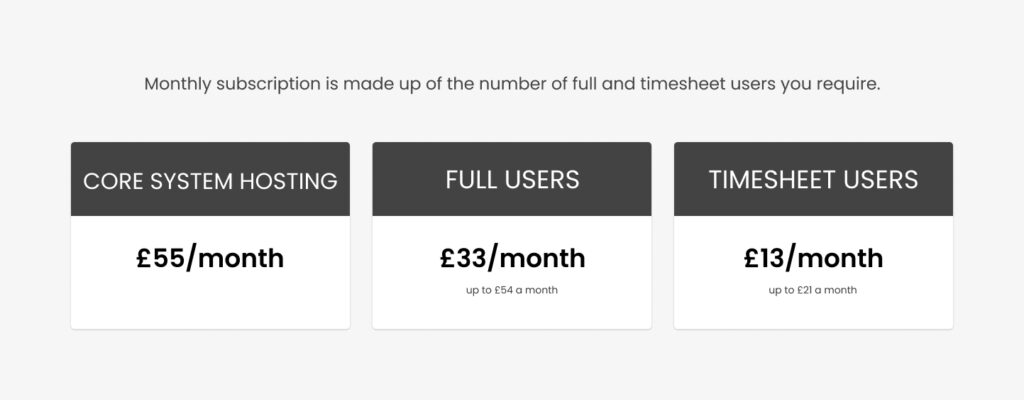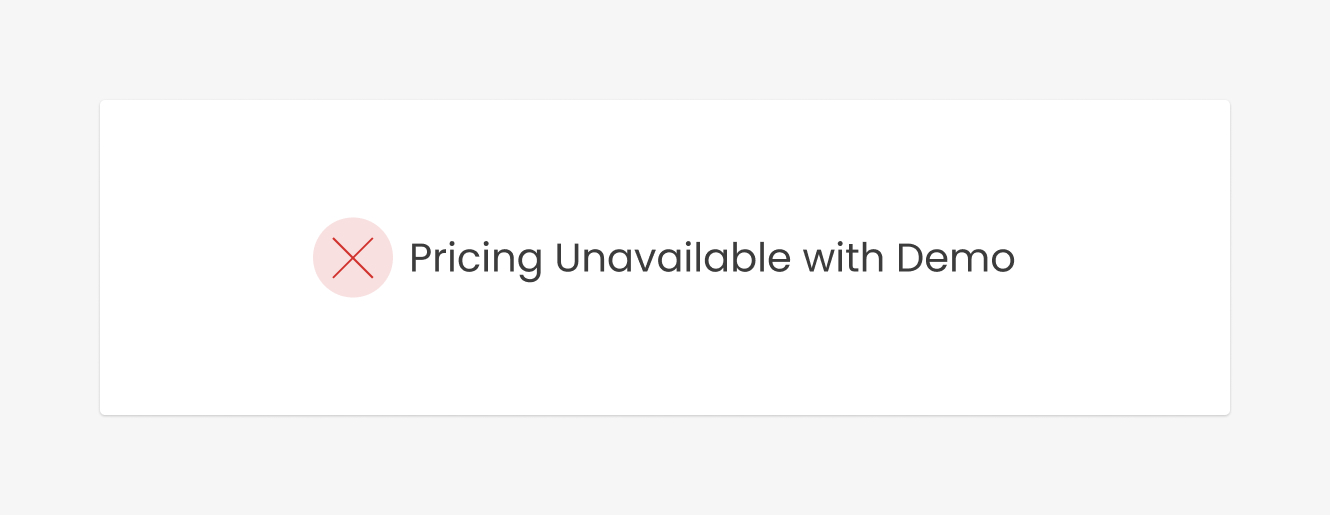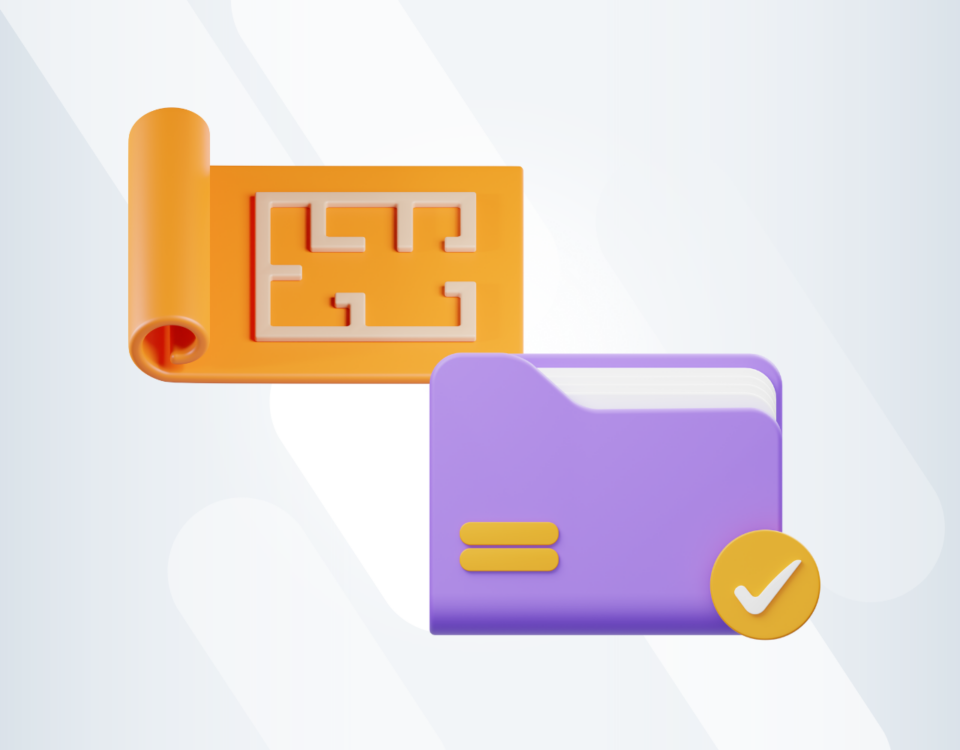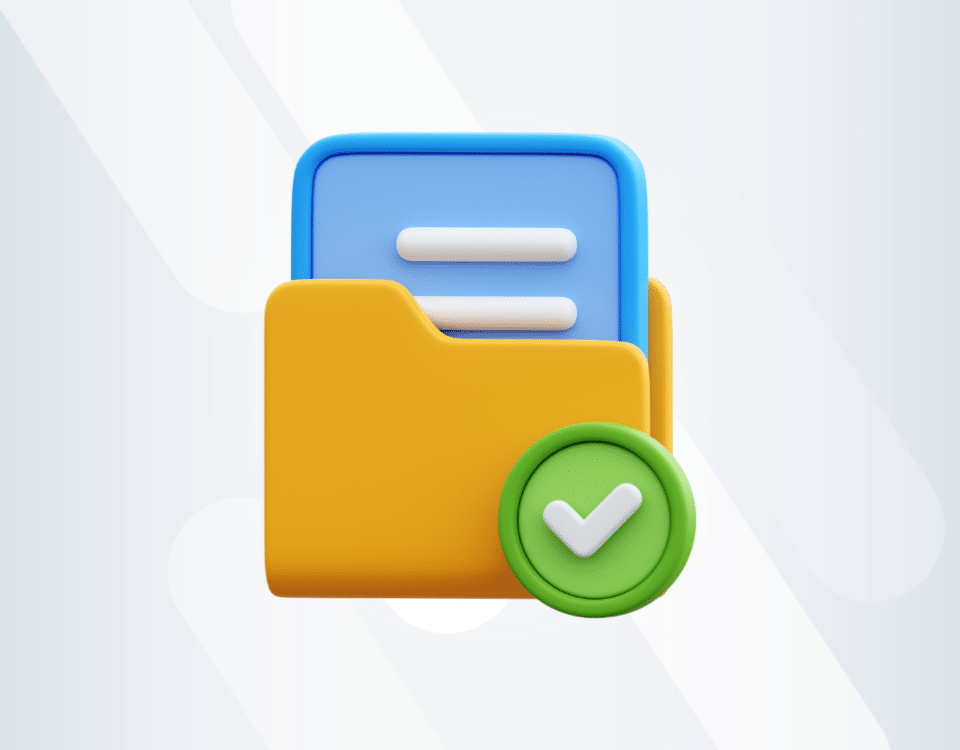Construction Tips, News & Best Practices
Best 6 Construction Job Costing Software and Tools:
An Essential Guide (2023)
Many construction job costing software and tools can assist businesses in streamlining their financial reporting and construction project management processes.
This article highlights the top six construction job costing tools and solutions that can assist construction organisations in controlling expenses, boosting productivity, and enhancing their financial performance.
Best construction job costing software and tools in 2023
Here are six fantastic options for construction job costing software (scroll down for more details):
- Archdesk
- Joblogic
- Contractor Foreman
- Synergist
- Procore
- Amber-JCS
What are job costing software and tools?
Job costing is vital for construction projects to track costs and ensure they stay within the allocated budget.
Job costing software and tools are essential for categorising the various costs associated with a job into manageable groups that can be effectively controlled and monitored.
These tools prevent projects from going over budget, allowing businesses to continue to be profitable by breaking down the cost of each project activity, including supplies, labour, and overheads.
What is job costing?
Job costing is an accounting technique that tracks the costs of particular projects and jobs. It involves examining direct and indirect costs and is usually divided into three categories – labour, materials, and overhead.
Knowing the costs for a project helps you better budget and makes it easy to plan for projects of a similar nature in the future.
It also allows you to identify areas of cost reduction or find items that should be billed to the client.
Types of job costing software and tools
Several types of job costing software and tools are available in the construction industry. Here are some of the most common types:
- Standalone job costing software: This program is designed primarily to manage and track job costs for construction projects.
It is a standalone application that doesn't offer any software integration.
- Construction management software: Job costing is one of the many features of construction projects that this software can manage.
In addition to job costing, it has scheduling, budgeting, and document management capabilities.
- Accounting software: Non-industry-specific accounting programmes like QuickBooks, Xero, and Sage can also help with construction job costing, especially when combined with software like Archdesk.
These tools often come with job costing modules or can be combined with other software, like Archdesk, that offers a full construction accounting suite.
- Project management software: Again, non-construction-specific platforms such as Asana and Monday aren’t up to the required standard.
You want software built especially for the industry so it can handle construction processes - like Archdesk.
- Enterprise resource planning (ERP) software: ERP software is a suite of applications that manages all aspects of a company's activities, including job costing.
In addition, it has features for financial, inventory, and human resource management and is tailored for large enterprises.
The type of job costing software or tools used in the construction industry will depend on the size and complexity of the project, as well as the construction company's needs.
Key features of job costing software and tools
In the construction industry, job costing software and tools come with various features and capabilities that cater to different aspects of project management.
Some key features of job costing software and tools you should consider are:
- Project and cost tracking
- Time tracking
- Invoicing and billing
- Reporting and analytics
- Integration with other systems
Why you need job costing software
Job costing software and tools have become increasingly popular in the construction industry owing to their numerous benefits, such as better resource allocation, increased accuracy, and enhanced communication.
Moreover, it allows construction firms to improve profitability and, in turn, save both time and money. Some of the key benefits of adopting job costing software are:
- Better project profitability: Job costing software allows construction companies to track and manage costs more efficiently.
Project managers can make decisions that boost profitability by clearly showing the costs associated with each project.
- Improved resource allocation: Knowing how much you are spending allows you to allocate resources more effectively.
This results in better cost planning, scheduling, and utilisation, which boosts project productivity and profitability.
- Increased accuracy: Job costing software automates many processes, reducing the risk of human errors associated with manual data entry.
This leads to more accurate data, fewer mistakes, and a more streamlined project management process.
- Improved team communication: Job costing software provides a space for better communication and collaboration between teams, stakeholders, and clients.
This leads to increased transparency, improved accountability, and better decision-making.
- Time and cost savings: Saving time and money becomes easier by automating processes and providing real-time visibility into project costs and performance.
This opens opportunities to take on more projects, increase revenue, and grow your business.
Adopting job costing software can improve efficiency, profitability, and overall project management in the construction industry.
Standalone tool vs. platform-like software
When it comes to picking software, both standalone and platform-like software have advantages and disadvantages.
Standalone tools are often more specialised and focused on specific tasks, making them easier to use and more efficient for those particular tasks.
On the other hand, platform-like software can offer a more comprehensive solution with a broader range of features and integrations, making it more versatile for managing various aspects of construction projects.
However, platform-like software may come with a steeper learning curve, and some features might not be as advanced as those found in standalone tools.
To decide between a standalone tool or a platform-like software, consider the size and complexity of your projects, your team's requirements, and your budget.
Ultimately, the best choice will depend on your specific needs and preferences.
Choosing the right construction job costing software for your business
When it comes to choosing the right construction job costing software for your business, it's essential to consider the following factors:
- Size and complexity of your projects: Larger, more complex projects may require more advanced and comprehensive software to manage all aspects of the job.
Smaller projects may only require a basic, easy-to-use tool.
- Features and functionality: Determine which features are crucial for your business and prioritise software that offers those specific capabilities.
- Ease of use: The software should be user-friendly and easy to learn for all team members, regardless of their technical proficiency.
- Integration with existing systems: Make sure the software can integrate seamlessly with your existing systems, such as accounting software or project management tools, to streamline workflows.
- Budget: Find a solution that fits within your budget without sacrificing the features and functionality you need.
- Customer support: Opt for software with responsive and helpful customer support to ensure any issues or questions are resolved promptly.
By considering these factors, you'll be better equipped to find the perfect construction job costing software for your business, allowing you to improve project management, maintain accurate financial records, and enhance profitability.
Best job costing software and tools of 2023
Here are the top job costing software and tools for 2023.
1. Archdesk

Capterra Rating: 4.8/5
G2 Rating: 4.3/5
Archdesk Pricing
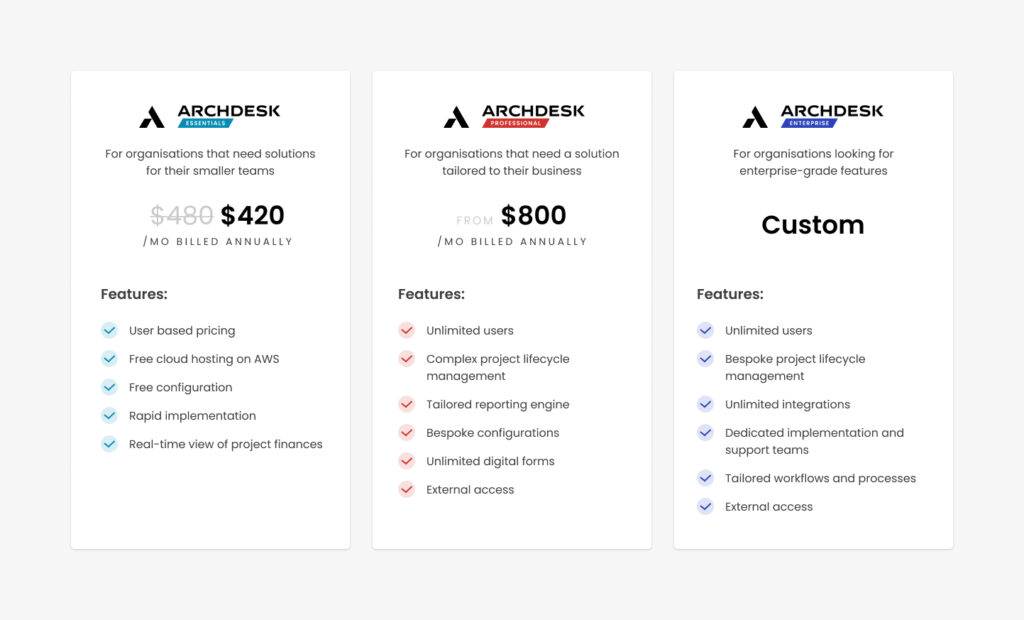
Archdesk Overview
Archdesk is an ideal choice for construction project management and job costing.
This software keeps track of costs for materials, labour, and more, ensuring your projects stay on budget and remain profitable. Archdesk provides real-time details and easy organisation, so you always know what's happening with your work.
Not only does it manage projects, but it also focuses on job costing, helping you stay within budget and make informed choices for your resources.
By analysing your costs and identifying patterns, Archdesk allows you to make smart decisions and feel confident about taking on new construction projects.
2. Joblogic
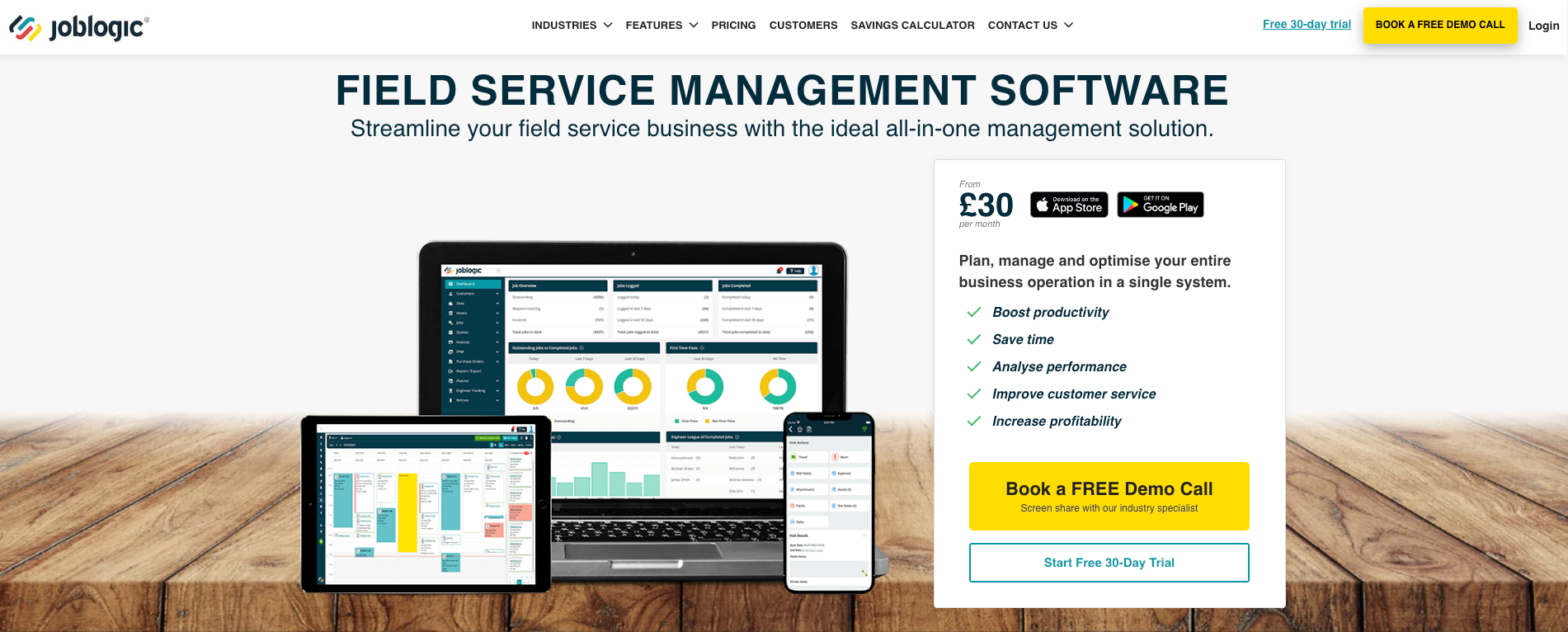
Capterra Rating: 4.5
G2 Rating: 4.5
Joblogic Pricing
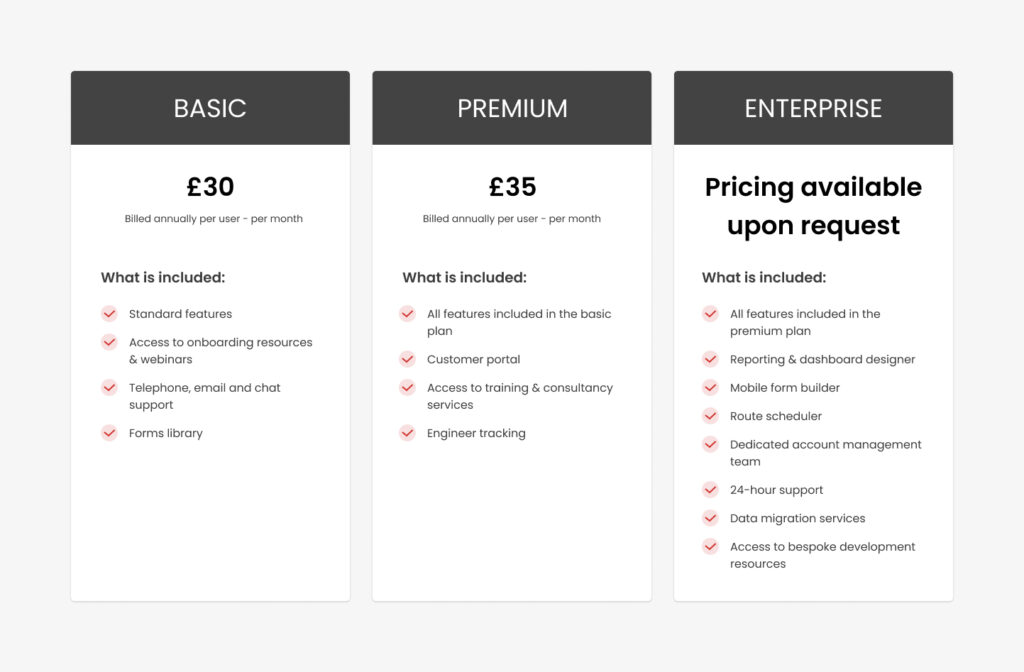
Joblogic Overview
Joblogic is a web-based job costing software designed for any service and maintenance industry. It provides asset tracking, bidding, costing, engineer scheduling, and asset management features.
Users can communicate work specifics to their engineers via the specially created mobile application, including addresses, site notes, office remarks, site asset details, and past servicing data.
Engineers can then log any costs, mileage, and parts utilised in real-time, collect client signatures, and relay the information back to the project managers.
3. Contractor Foreman
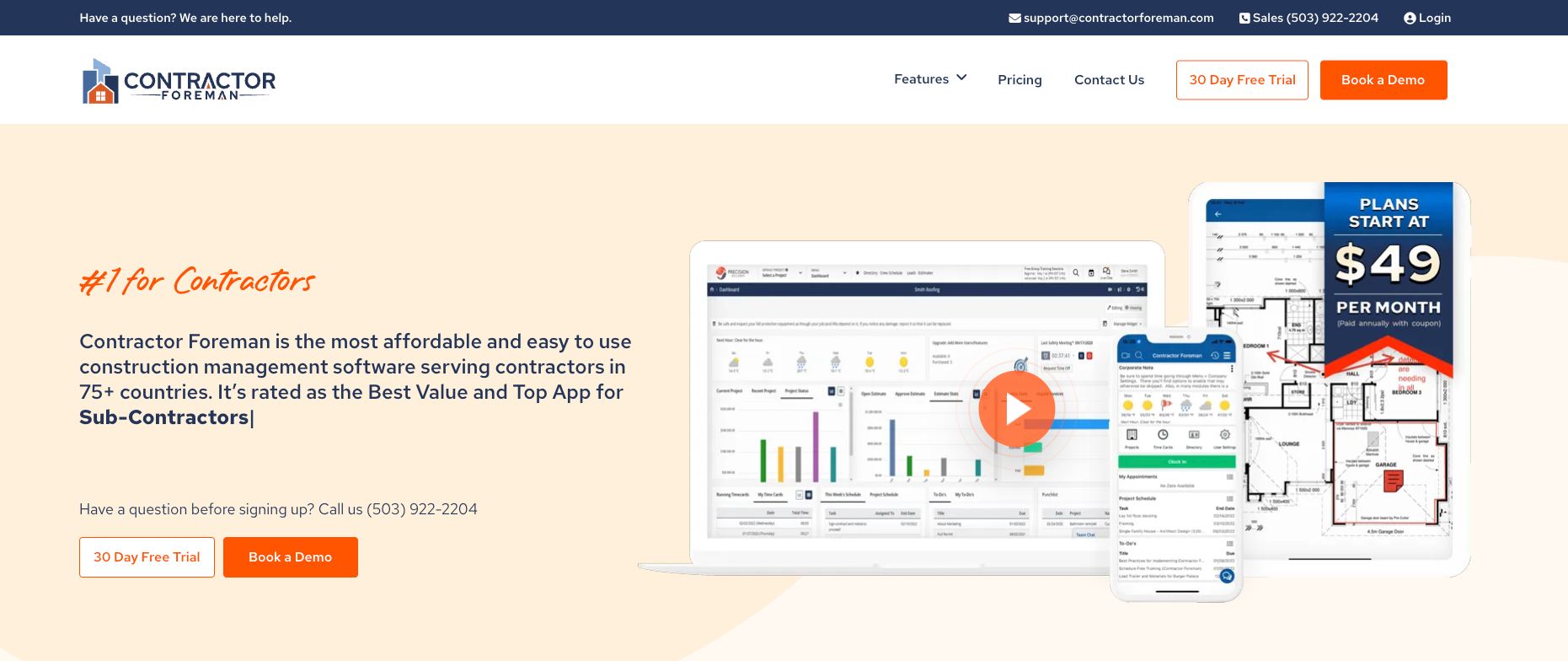
Capterra Rating: 4.4
G2 Rating: 4.5
Contractor Foreman Pricing

Contractor Foreman Overview
Contractor Foreman was created with small and medium-sized construction enterprises in mind.
This construction management software is reasonably priced compared to most of its other rivals in the construction job costing software market.
The platform allows you to import data from outside sources and easily integrate it with the software to keep all your key information under one roof for easy access.
4. Synergist
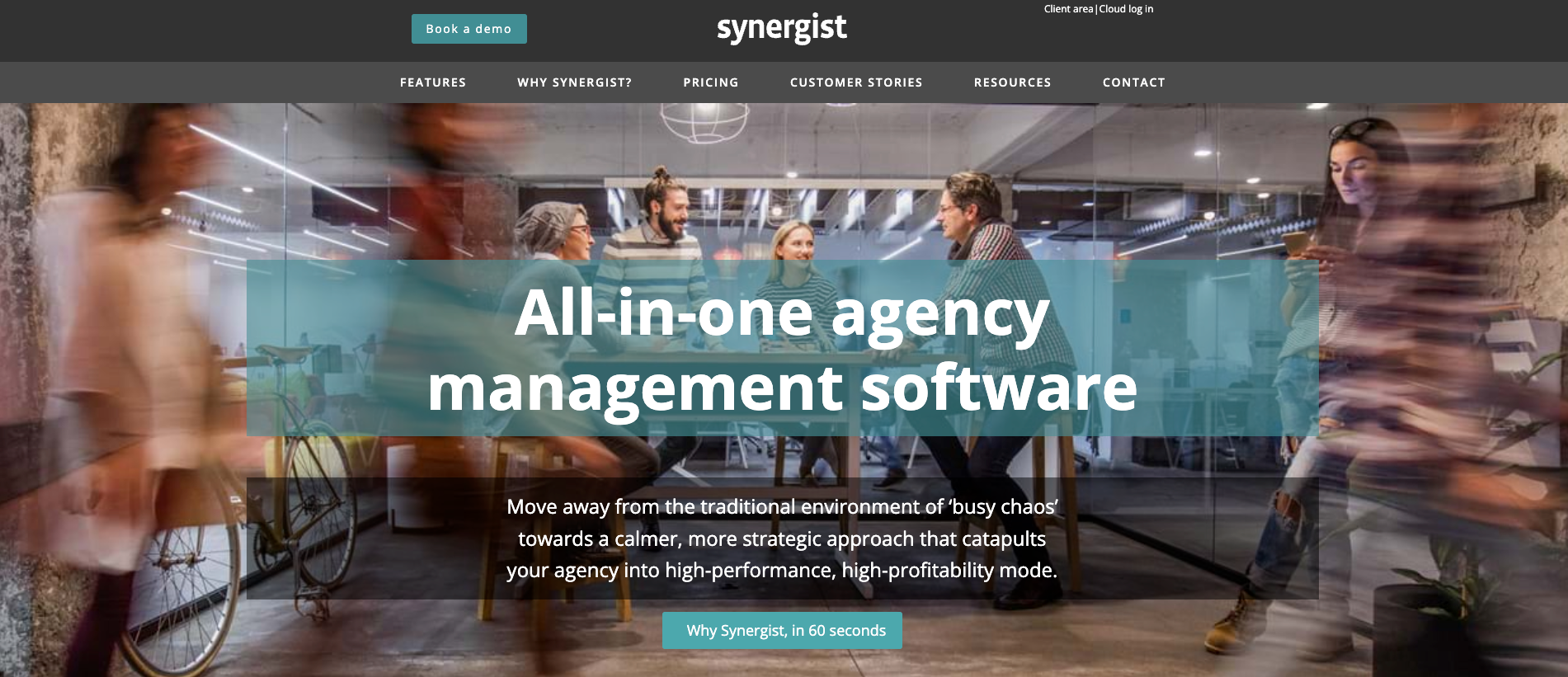
Capterra Rating: 4.4
G2 Rating: 3.5
Synergist Pricing
Synergist Overview
Synergist is a project management and job costing solution designed for agencies, consultancies, and in-house departments.
The software offers various tools for communication, project planning, time tracking, project costing, billing, opportunity tracking, and more.
Synergist enables collaboration and end-to-end project management for the construction industry. It also offers real-time project visibility to ensure teams and clients are on the same page.
5. Procore
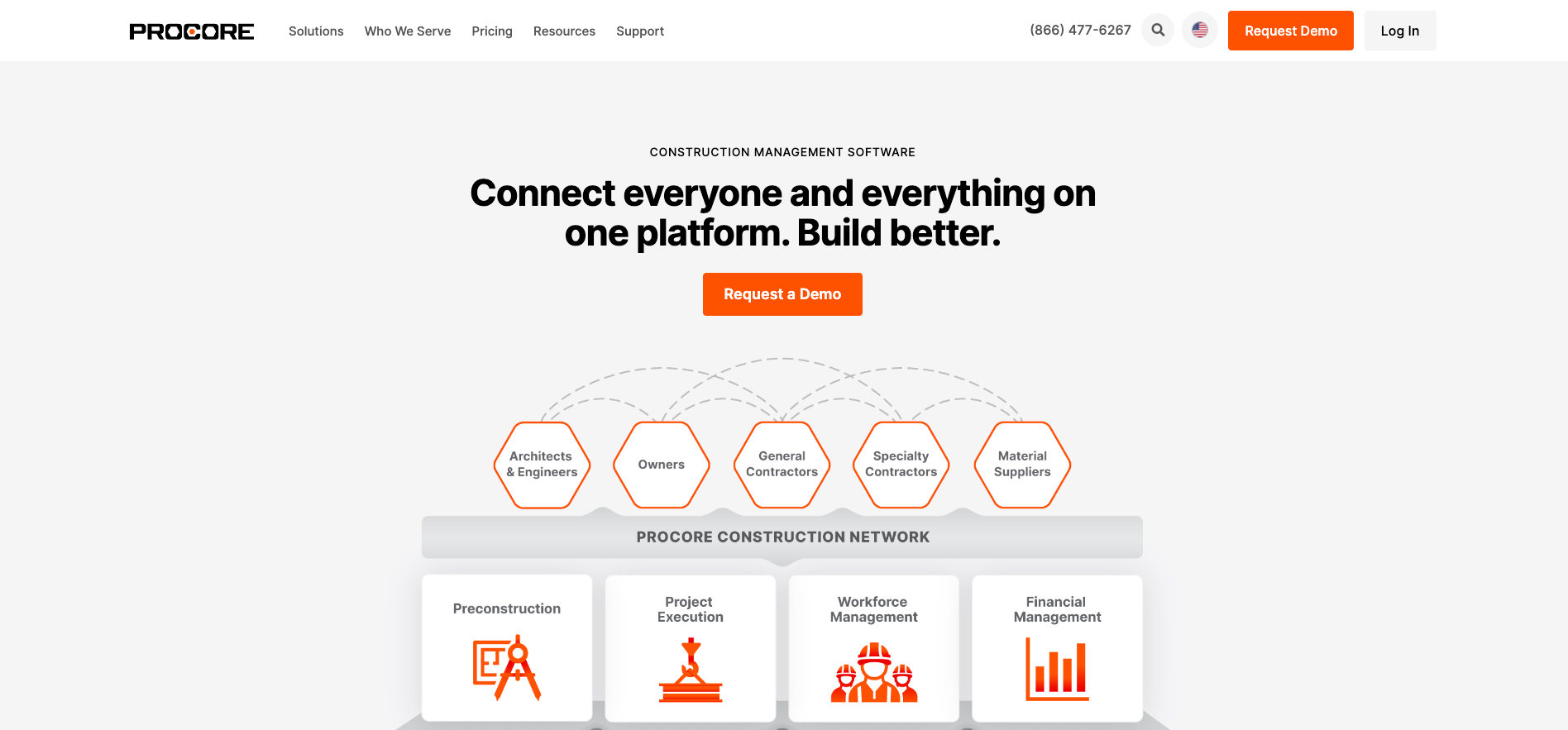
Capterra Rating: 4.5
G2 Rating: 4.5
Procore Pricing
Procore Overview
The software provides specialised solutions for every contributor in the industry, including owners, general contractors, and speciality contractors, connecting them on a single platform.
Procore establishes a single source of truth by facilitating communication between teams, enabling them to work together more efficiently.
With easy access to all the information they need, Procore empowers teams to get the job done effectively.
6. Amber-JCS
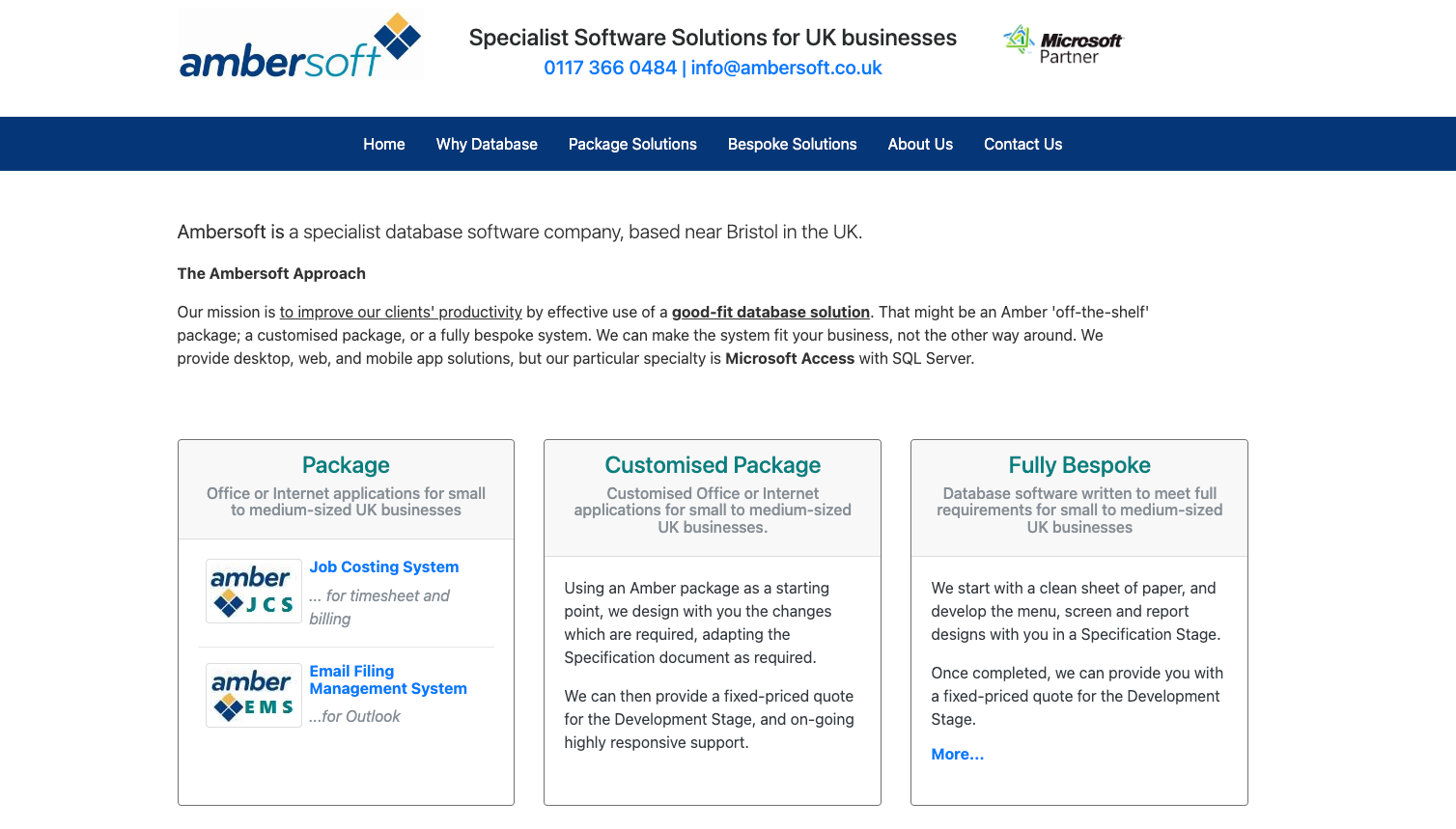
Capterra Rating: 5
G2 Rating: N/A
Amber-JCS Pricing
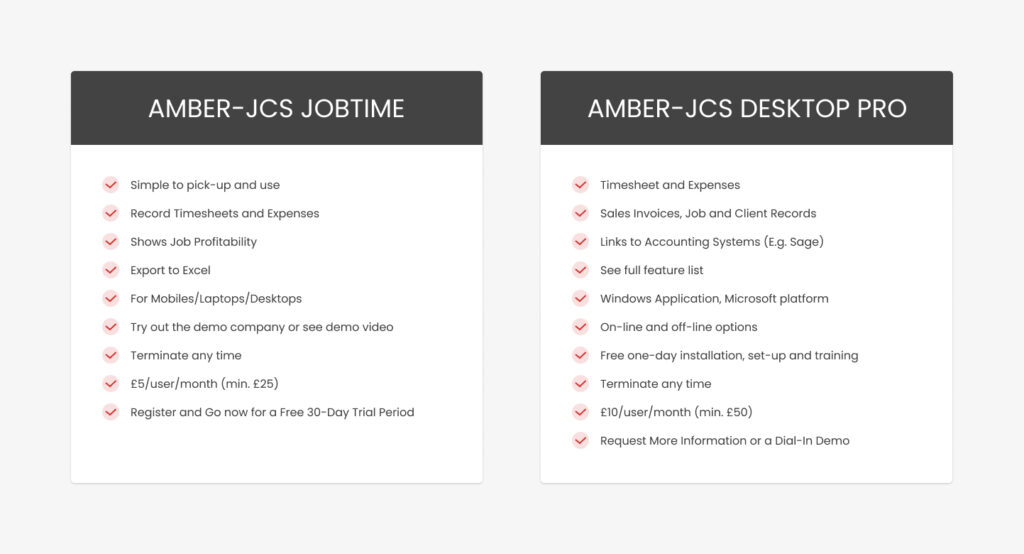
Amber-JCS Overview
Amber-JCS is a construction job costing software explicitly designed for project-oriented professionals based in the UK.
The system's core features cover timesheets, expenses, purchases, invoicing, and reporting, while additional features such as quotes, contact management, and email filing can be added as needed.
Amber-JCS also offers the option to integrate with accounting systems such as Sage and Microsoft Outlook.
Frequently asked questions (FAQ)
What is job costing software?
Job costing software allows project managers to make timely, data-driven choices to keep projects within budget and improve profitability by providing real-time visibility into what is happening with a project.
What are the main features of job costing?
Some of the main features of job costing include cost identification, cost control, budgeting, material and labour costs, profitability analysis, accurate pricing, time tracking, invoicing, and more.
Why is job costing important?
Job costing assists the business in estimating the cost of the materials, labour, and overhead incurred for a specific project. It enables companies to provide quotations that are affordable enough to be appealing to customers while maintaining a profit margin.

Karolina Dobrowolska
Content Marketer
You might also like
February 29, 2024 • 7 min read
Utilizing the human-first approach to construction projects to drive higher results.
July 3, 2023 • 6 min read
8 Best Construction Drawing Management Software (2023): A Comprehensive Guide
Find all the information you need about the construction drawing management software tools available on ...June 14, 2023 • 6 min read
The 11 Best PlanGrid Alternatives (2023)
Looking for a great alternative to PlanGrid software? Check out the 11 best construction software tools ...June 14, 2023 • 4 min read
How to win at CIS 340 and make taxes a breeze
CIS 340 is a legal obligation for contractors. But getting it right isn’t straightforward. Want ...

